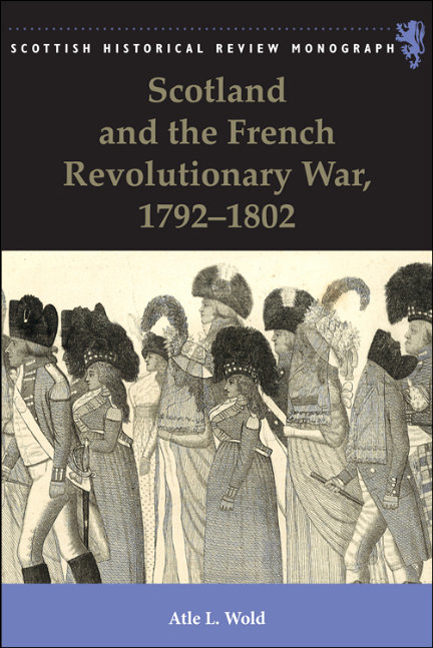Conclusion
Published online by Cambridge University Press: 20 December 2017
Summary
In January 1793, Henry Dundas received an anonymous letter where the author made a very specific complaint:
I observe in the Star 16th Currt a Copy of Lord Grenvilles Answ. To the French Court in which the word England occurs repeatedly. It has given great offence to the foes of government, & much distress to its friends. Why not Great Britain[?]
This brief but emotional statement made before Britain had entered the war against Revolutionary France can in some ways be seen to encapsulate an important aspect of the Scottish experience of the turbulent and dramatic 1790s as a whole. It was a time when many Scots had stood forward in defence of the British state, and had contributed to the war effort as best they could. They had embraced the British project in a conspicuous way at a time of crisis, so was it too much to ask of the English that they would do the same? Moreover, since the political radicals in Scotland had also stressed their pan-British approach– most obviously in the case of the British Convention held in Edinburgh in 1793– one could argue that the 1790s was a decade when belief in the Union permeated Scottish society. Political divisions or not, few seemed to question Scotland's place in Britain, a point which is further underlined by the consistency with which they referred to Scotland as ‘North Britain’. Whether concerning letters, articles, pamphlets, addresses, or resolutions, it is, in fact, hard to come by anyone referring to ‘Scotland’ only in the 1790s. Rather, the tendency was to use ‘North Britain’ (or simply ‘N.B.’), or ‘that part of Great Britain called Scotland’, or sometimes even ‘known as Scotland’. Yet, the statement also points in the direction of a degree of unease or ambivalence on the part of the Scots, about the relationship with their greater southern neighbour. For one thing, the English were not, of course, interested in referring to England as ‘South Britain’, and this caused some irritation among Scots. More importantly though, as the junior partner in the Union, the Scots would always have to raise their head to be seen, and while they may have been proud of the contributions to the war effort which they did in fact make, they were also sensitive to English criticism or interference.
- Type
- Chapter
- Information
- Scotland and the French Revolutionary War, 1792–1802 , pp. 207 - 213Publisher: Edinburgh University PressPrint publication year: 2015



